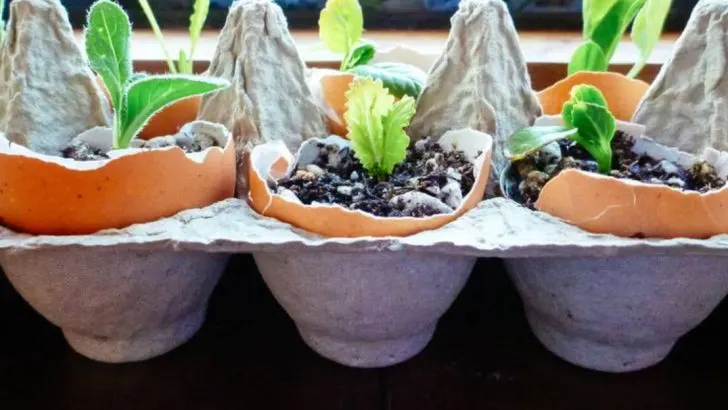Gardening can be a rewarding but time-consuming hobby. Luckily, there are plenty of clever hacks to help you save time, effort, and money while creating a thriving garden. From repurposing household items to smart planting techniques, these 27 easy gardening hacks will enhance your gardening experience and maximize your results. Whether you’re a seasoned gardener or just starting out, these tips will help you work smarter, not harder, allowing you to enjoy your garden more fully!
Eggshell Seed Starters
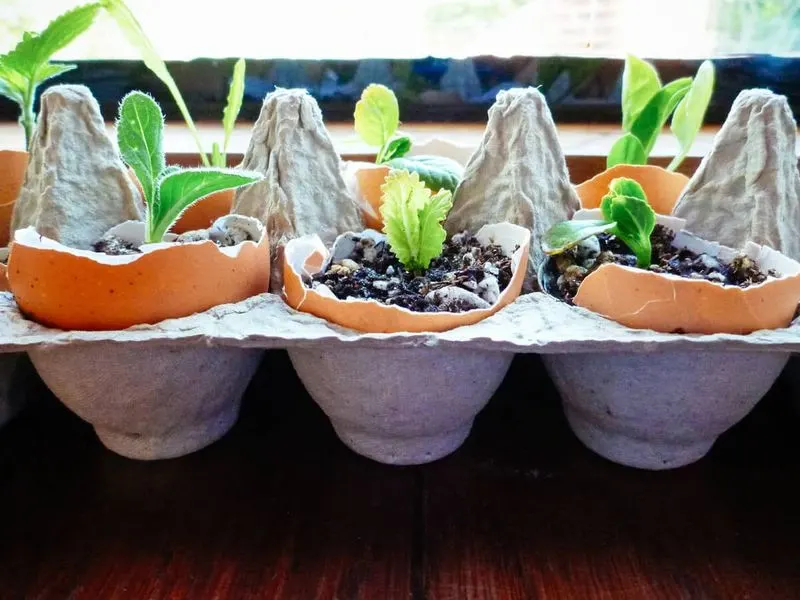
Eggshells make excellent seed starters. The shells provide a natural and biodegradable container, perfect for nurturing young plants. Simply fill each half with soil and plant your seed. As the seedlings grow, the calcium-rich shell strengthens the plant. When it’s time to transplant, gently crush the shell and plant it directly into the ground. This not only reduces waste but also enriches the soil. Ideal for those with limited space, this hack is as simple as saving your breakfast leftovers, making it both eco-friendly and cost-effective. Embrace sustainability with this clever trick.
Banana Peel Fertilizer
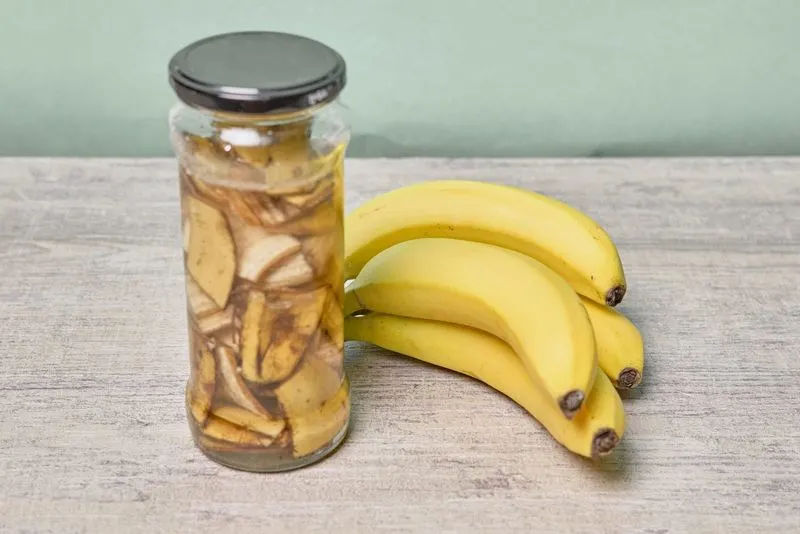
Banana peels are rich in nutrients that plants love. Instead of throwing them away, cut them into small pieces and bury them in the soil near your plants. As they decompose, they release potassium and phosphorus, essential for plant growth. This method is particularly beneficial for flowering plants, enhancing their blooms. It’s a natural, cost-effective way to boost your garden’s vitality without chemical fertilizers. Perfect for urban gardeners, this tip turns kitchen waste into a valuable resource, ensuring your garden thrives with minimal effort and expense.
DIY Drip Irrigation
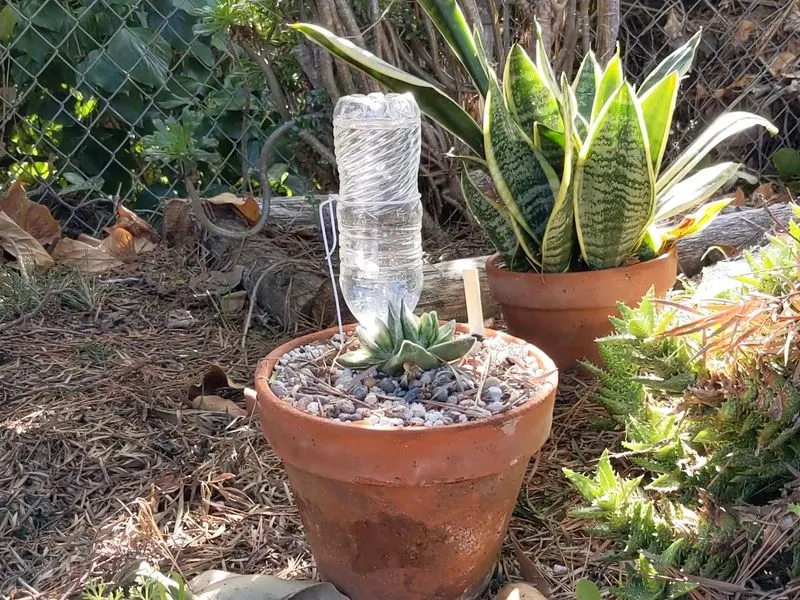
Create a simple drip irrigation system using plastic bottles. Poke small holes in the cap and bottom, fill with water, and bury it upside down near your plants. This allows for gradual water release, keeping the soil consistently moist. Ideal for dry climates, this hack conserves water and ensures plants receive steady hydration. It’s an affordable solution for those looking to maintain their gardens without constant watering. This technique suits busy gardeners who want to optimize plant health while reducing water waste, making it both practical and environmentally friendly.
Coffee Grounds for Pests
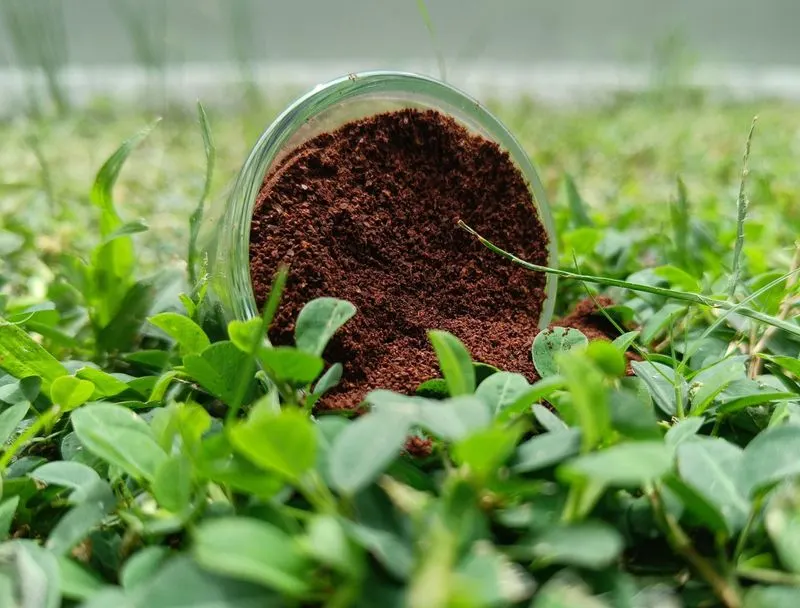
Repel pests naturally by using coffee grounds. Scatter used coffee grounds around your garden to deter slugs and snails. The texture and caffeine create an effective barrier without harming the environment. This hack is particularly useful for vegetable gardens, keeping produce safe from hungry invaders. It’s a sustainable alternative to chemical pesticides, protecting your plants and the ecosystem. Coffee grounds also add nitrogen to the soil, promoting healthy plant growth. This dual-purpose tip is both economical and easy, perfect for environmentally conscious gardeners.
Vinegar Weed Killer
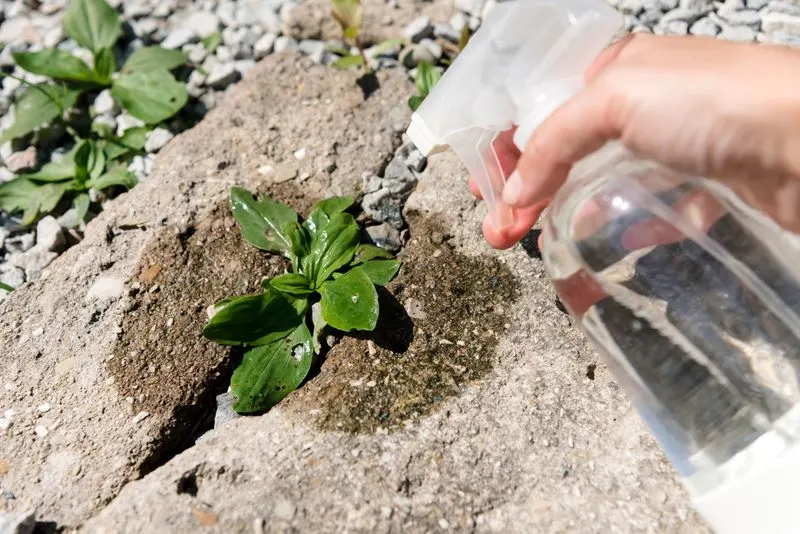
White vinegar is a powerful weed killer. Spray it directly onto unwanted plants for a natural solution to weed control. The acetic acid in vinegar effectively dries out weeds, leaving your garden weed-free. This method is especially effective on sunny days, as the heat enhances vinegar’s effectiveness. It’s a safe alternative to chemical herbicides, preserving soil health while eliminating unwanted guests. Suitable for walkways and garden beds, this hack provides a quick and affordable solution to maintaining a tidy garden. Embrace simplicity with this straightforward approach.
Newspaper Mulch
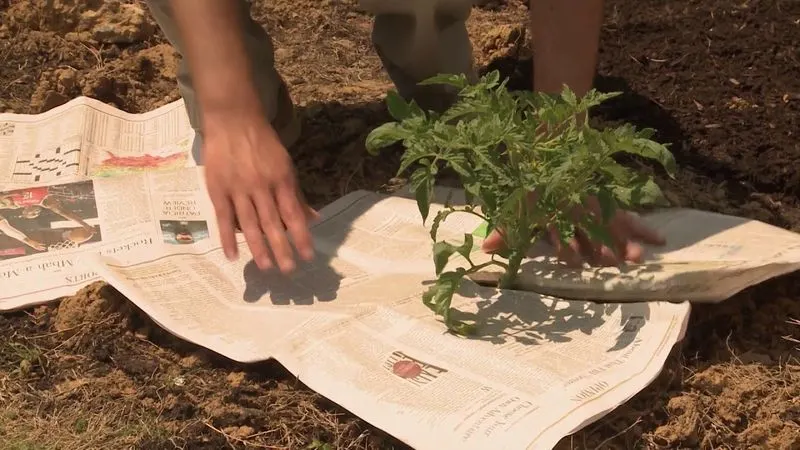
Newspapers can serve as an excellent mulch. Lay down sheets between your plants to suppress weeds and retain moisture. As the paper decomposes, it enriches the soil with organic matter, benefiting overall garden health. This hack is a great way to recycle old newspapers and reduce your garden maintenance costs. Especially useful for large gardens, newspaper mulch is both practical and accessible. By utilizing everyday materials, you can easily maintain a healthy and thriving garden without the need for expensive mulching products. This is sustainability at its simplest.
Baking Soda for Sweeter Tomatoes
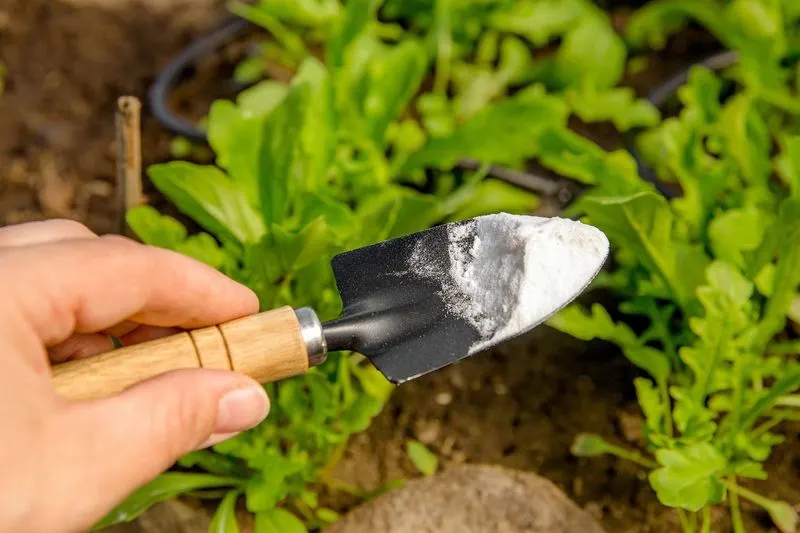
Enhance the sweetness of your tomatoes with baking soda. Sprinkle a small amount around the base of your plants. The baking soda lowers soil acidity, resulting in sweeter fruit. This hack is simple yet effective, improving the flavor of your homegrown produce. It’s particularly beneficial for those growing tomatoes in acidic soil. By altering the soil’s pH subtly, you can achieve tastier tomatoes without chemical additives. This method is ideal for gardeners who prioritize natural and flavorful produce, offering an easy way to elevate your gardening results.
Epsom Salt for Plant Health
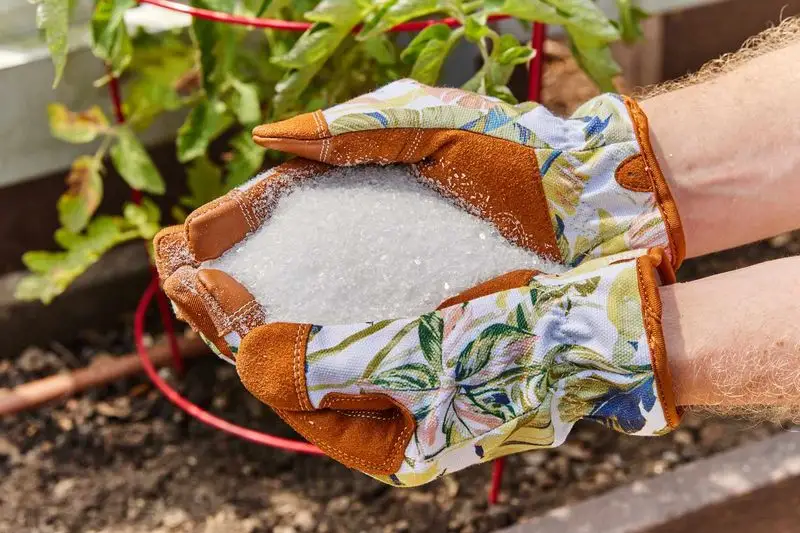
Epsom salt is a versatile addition to any garden. Rich in magnesium, it promotes healthy plant growth and vibrant blooms. Dissolve in water and use as a foliar spray or mix into the soil. It’s particularly effective for roses, peppers, and tomatoes, enhancing their color and yield. This inexpensive solution is perfect for boosting your plants without resorting to synthetic fertilizers. Epsom salt is widely available and simple to use, making it a practical choice for gardeners looking to improve plant vitality while maintaining a natural gardening approach.
Hair for Deer Deterrent

Human hair is an effective deer deterrent. Scatter strands around your garden to ward off these curious animals. The scent of humans keeps deer at bay, protecting your plants from being eaten. This method is eco-friendly and cost-effective, utilizing a natural byproduct. Perfect for rural areas where deer are common visitors, this hack saves your garden from unwanted browsing. Simply collect hair from your brush and spread it around. It’s an easy, non-toxic solution to safeguarding your plants, ensuring your garden remains intact and healthy.
Citrus Peel Starters
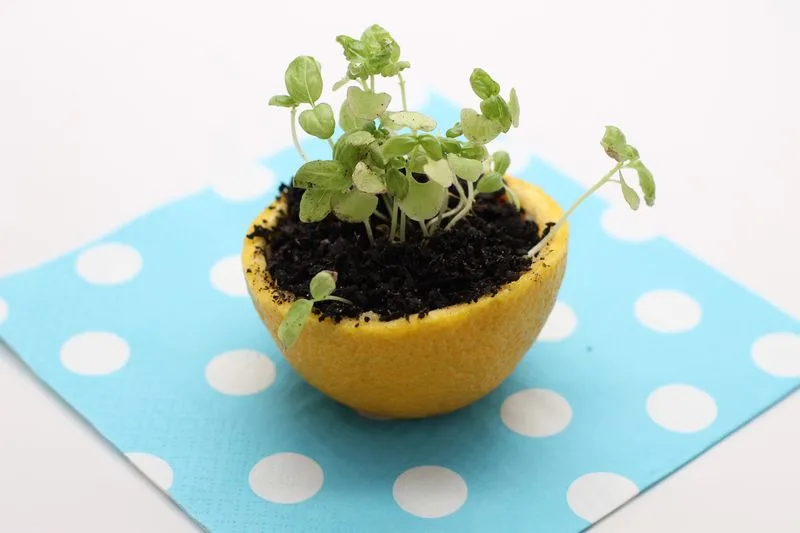
Use citrus peels as seed starters. Fill the halves with soil and plant seeds inside. The biodegradable nature of the peel provides nutrients as it decomposes. This method is perfect for those seeking eco-friendly gardening practices. It’s a creative way to start seedlings, reducing waste and enriching the soil simultaneously. Once ready to transplant, place the entire peel in the ground. This hack is ideal for small spaces and urban gardens, turning kitchen scraps into valuable gardening tools. Embrace the cycle of nature with this clever and sustainable approach.
Hydrogen Peroxide Soil Booster
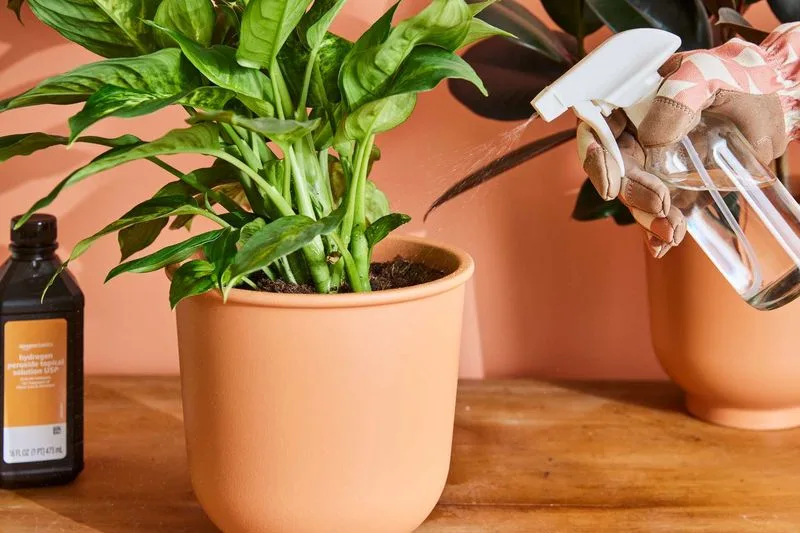
Boost soil health with hydrogen peroxide. Mix with water and use it to aerate compacted soil, improving root growth and oxygen levels. This inexpensive solution is perfect for those struggling with dense or clay-heavy gardens. It’s a simple way to ensure your plants receive adequate airflow, promoting stronger, healthier growth. Hydrogen peroxide also helps prevent root rot by killing pathogens in the soil. This hack is particularly useful for potted plants and container gardens, offering a quick and effective means to maintain optimal soil conditions.
Milk Spray for Fungal Control
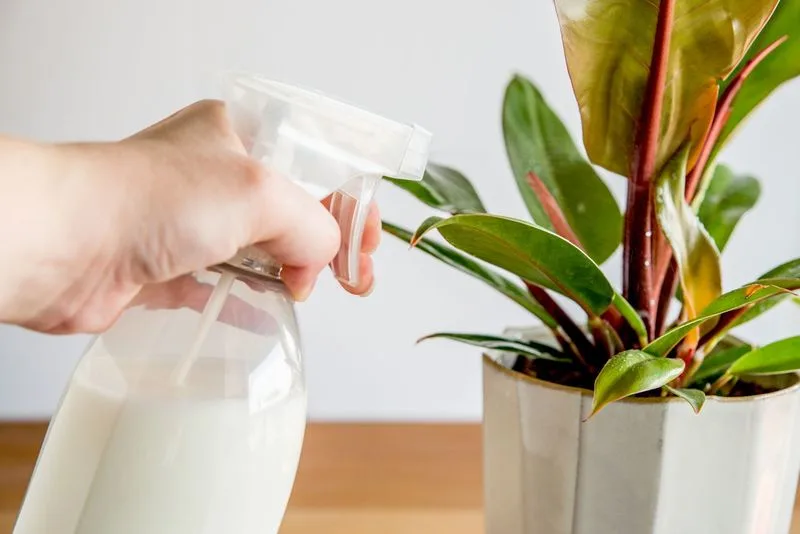
Combat fungal diseases using milk. Mix with water and spray on affected plants to prevent the spread of powdery mildew and other fungi. This natural solution is gentle on plants and the environment, offering a safe alternative to chemical fungicides. Ideal for cucumbers, squash, and roses, the milk spray helps maintain plant health without harmful residues. It’s a straightforward and accessible method for any gardener facing fungal issues. By utilizing an everyday household item, you can protect your plants while staying committed to natural gardening practices.
Bottle Protectors for Seedlings
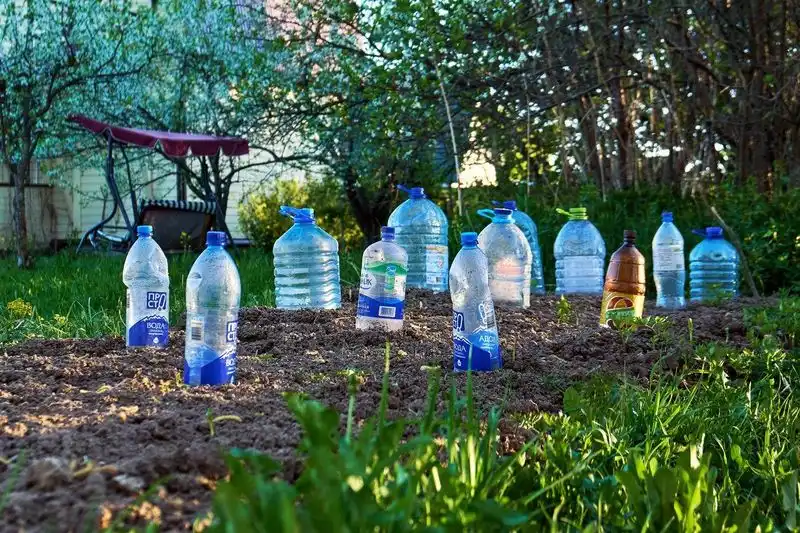
Protect seedlings with plastic bottle covers. Cut bottles in half and place them over young plants to create a mini greenhouse effect. This shields them from pests and harsh weather while promoting growth. It’s an effective way to ensure your seedlings get a strong start in life. The clear plastic allows sunlight in while maintaining humidity, perfect for nurturing tender sprouts. This hack is ideal for early season planting when the weather can be unpredictable. It’s a cost-effective solution that reuses materials, making gardening more sustainable and budget-friendly.
DIY Compost Bin
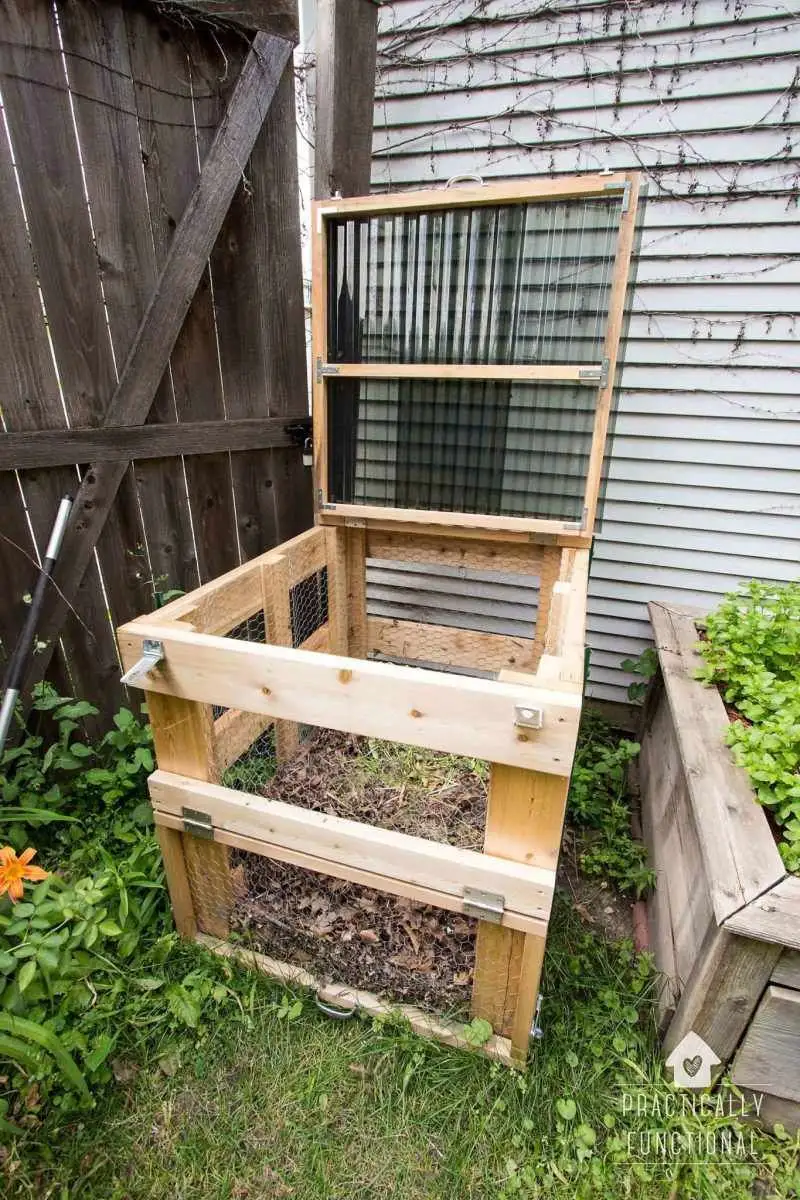
Create your own compost bin using recyclable materials. Wooden pallets or old bins can be transformed into effective composters, turning kitchen and garden waste into rich soil. This hack reduces landfill contributions and provides nutrient-rich compost for your garden. It’s an economical way to recycle organic matter, enhancing your garden’s health without purchasing commercial compost. Perfect for gardeners of all levels, this method is both sustainable and rewarding. By composting, you embrace a cycle of growth and renewal, contributing positively to your garden and the environment.
Shower Scrubber for Pots
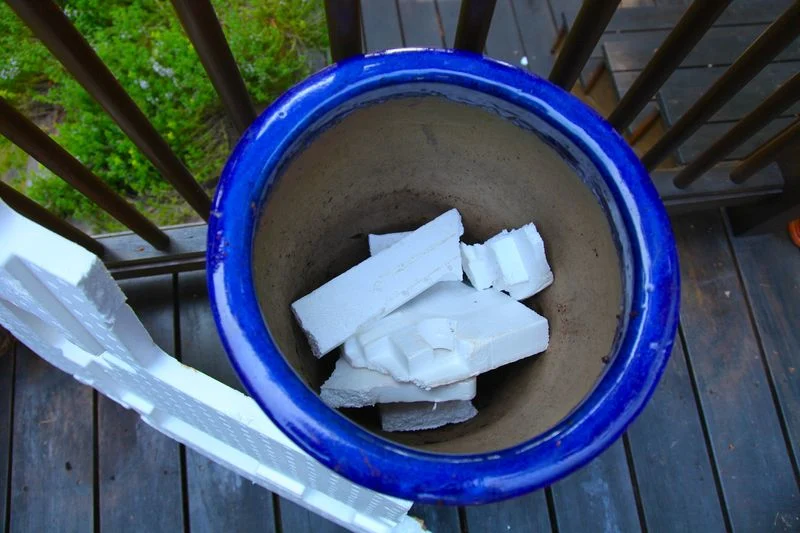
Clean garden pots easily using a shower scrubber. The bristles efficiently remove dirt and salt deposits, keeping your containers in top condition. This hack is particularly useful during seasonal transitions when pots need a refresh. A clean pot prevents disease and ensures healthy plant roots. It’s an affordable solution that utilizes common household items, making gardening maintenance straightforward. By repurposing a shower scrubber, you save time and money while keeping your garden organized. This simple trick ensures your containers are always ready for new growth.
Soap for Easy Grip
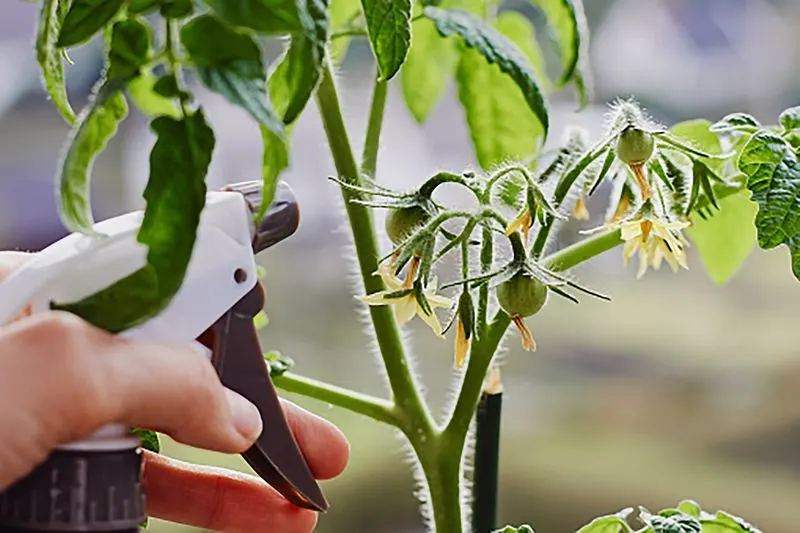
Enhance your grip on garden tools with a bar of soap. Rub tools with dry soap to create a non-slip surface, making gardening tasks easier. This trick is particularly beneficial during wet weather or when working with heavy tools. It’s a straightforward solution to prevent blisters and improve efficiency in the garden. By using a common household item, you enhance comfort and productivity without additional costs. This practical hack is suited for gardeners who value simplicity and effectiveness, ensuring every gardening session is as enjoyable as possible.
Tea Bags for Acid Lovers
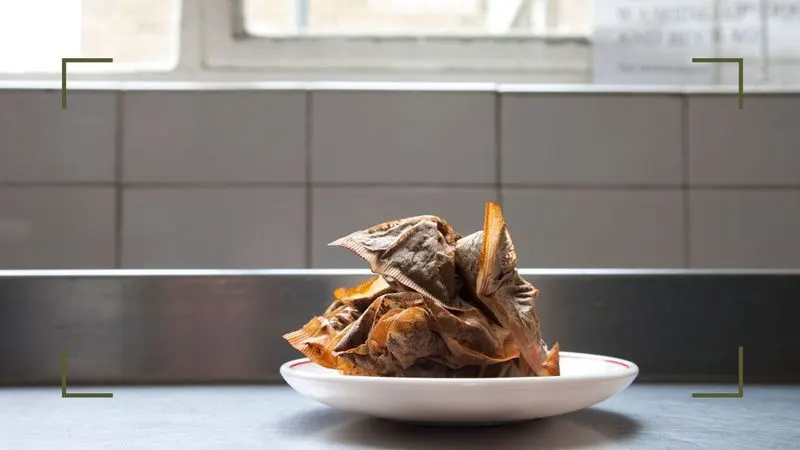
Recycle used tea bags to enrich soil for acid-loving plants. Place tea bags around plants like azaleas and blueberries to provide nutrients and improve soil acidity. The tannins and organic matter in tea bags boost soil health, promoting vibrant growth. This simple method is perfect for gardeners looking to enhance plant vitality without chemical additives. It’s an eco-friendly way to reduce waste while supporting your garden’s needs. By reusing tea bags, you contribute to a sustainable gardening practice that benefits both your plants and the environment.
Aspirin for Plant Disease

Use aspirin to boost plant immunity. Dissolve tablets in water and spray on plants to help them resist disease. The salicylic acid in aspirin strengthens plants’ natural defenses, reducing susceptibility to pathogens. It’s a low-cost alternative to commercial plant boosters, making it accessible for all gardeners. This hack is particularly effective for tomatoes and roses, enhancing their resilience against common diseases. By incorporating aspirin into your gardening regimen, you provide an extra layer of protection for your plants, ensuring they remain healthy and robust throughout the growing season.
Floating Row Covers Against Frost

Protect your crops from frost using floating row covers. These lightweight fabrics act as a barrier against cold temperatures, ensuring plant safety during unexpected chills. They’re particularly useful in transitional seasons when frost can surprise gardeners. Easy to install and reusable, these covers provide a reliable defense, maintaining warmth and moisture for your plants. This hack is ideal for gardeners eager to extend their growing season or safeguard delicate crops. By utilizing row covers, you ensure your garden thrives even when the weather doesn’t cooperate, offering peace of mind and plant security.
Spray Bottle for Watering
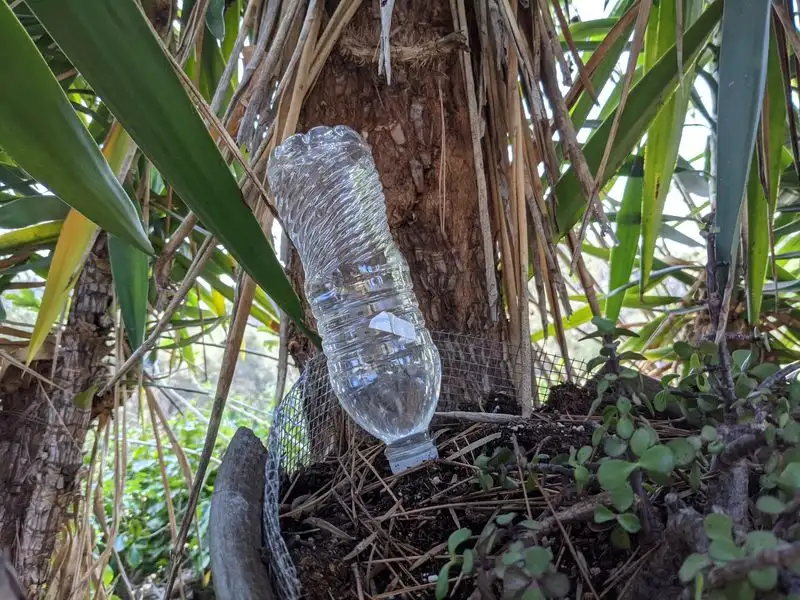
Use a spray bottle for gentle watering of delicate indoor plants. It provides a fine mist that prevents soil displacement, ensuring plant roots remain stable. This method is ideal for seedlings and fragile plants that require precise watering. Spray bottles are an inexpensive tool that offers control and convenience, making them a gardener’s best friend for indoor care. By adopting this approach, you nurture your plants with the right amount of moisture, promoting healthy growth and reducing the risk of overwatering. It’s a simple, effective way to maintain vibrant indoor greenery.
Plastic Forks for Pest Control
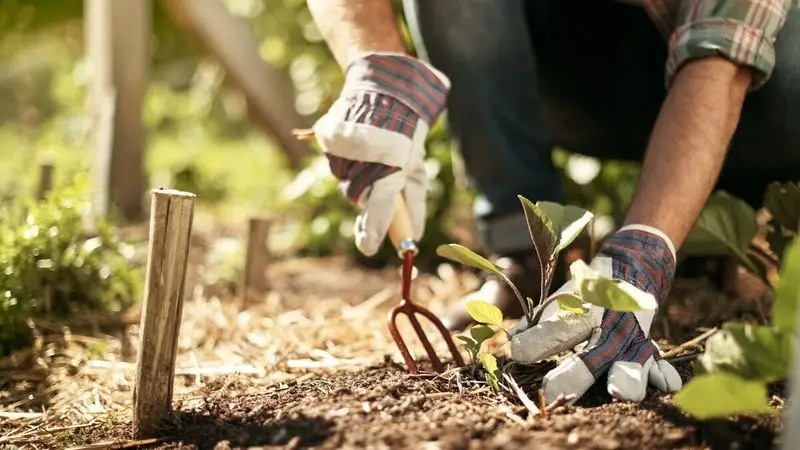
Keep pests away with plastic forks. Insert them into the soil around seedlings to deter animals like cats and dogs from disturbing your plants. The forks create a physical barrier without harming animals, protecting your garden effectively. This hack is especially useful for urban gardeners dealing with pets and neighborhood wildlife. It’s a clever, reusable solution that utilizes household items, saving both time and money. By implementing plastic forks, you ensure your young plants grow undisturbed, securing their development and your gardening success.
Charcoal for Odor Control
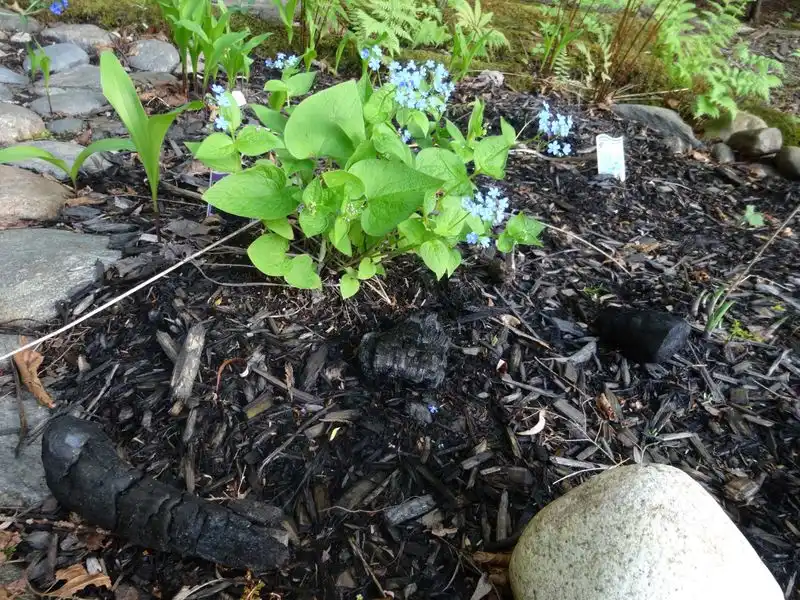
Use charcoal to control compost odors. Place a few pieces in your compost bin to absorb unpleasant smells and maintain balance. Charcoal’s natural filtering properties keep your compost environment fresh and inviting. This hack is particularly beneficial for urban gardeners with limited space, ensuring composting remains a pleasant activity. It’s a cost-effective way to manage odors without chemical deodorizers. By incorporating charcoal, you enhance your composting experience, making it more enjoyable and sustainable. This simple addition ensures your garden benefits from rich, odor-free compost.
Old Towels for Frost Protection
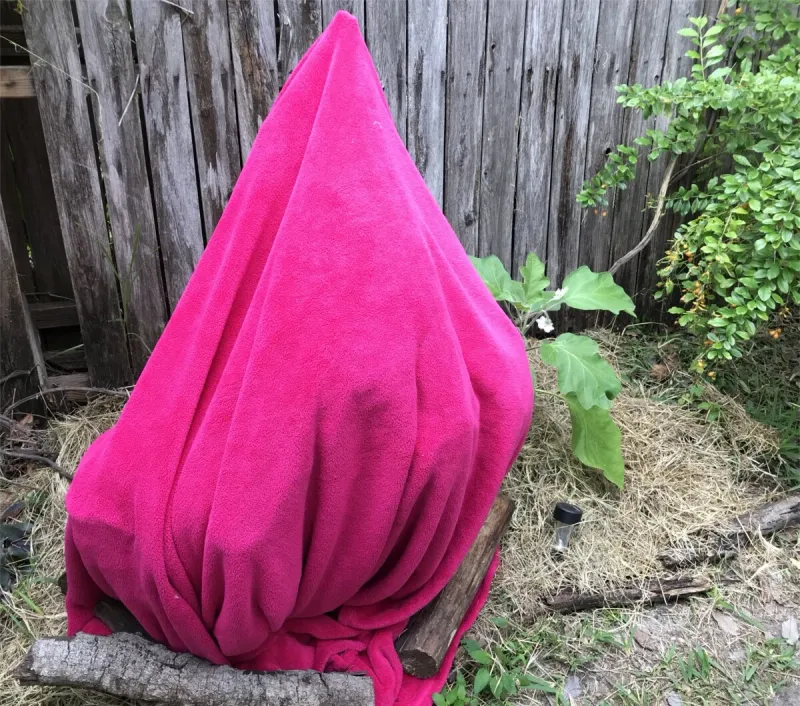
Repurpose old towels to shield plants from frost. Cover vulnerable plants during cold nights to trap heat and prevent frost damage. This method is ideal for those unexpected weather changes, offering a quick and accessible solution. Old towels provide an extra layer of warmth without the need for specialized equipment. It’s a great way to extend the life of your plants and ensure their survival through cooler seasons. By reusing household items, you embrace sustainable practices that benefit both your garden and the environment, making gardening more resourceful.
Pine Needles for Acidic Mulch
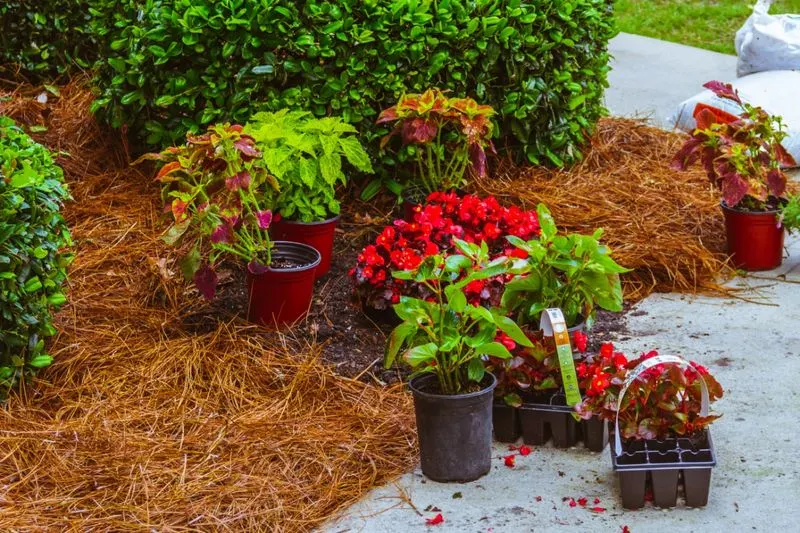
Use pine needles as mulch for acid-loving plants. Spread them around azaleas, rhododendrons, and blueberries to maintain soil acidity and deter weeds. Pine needles decompose slowly, providing long-lasting coverage and organic matter. This method is perfect for gardens located in pine-rich areas, utilizing natural resources effectively. By choosing pine needles, you create an eco-friendly mulch that supports plant health and reduces garden maintenance. This hack turns what might be waste into a valuable resource, enhancing both the beauty and functionality of your garden.
Bottle Greenhouses for Seedlings
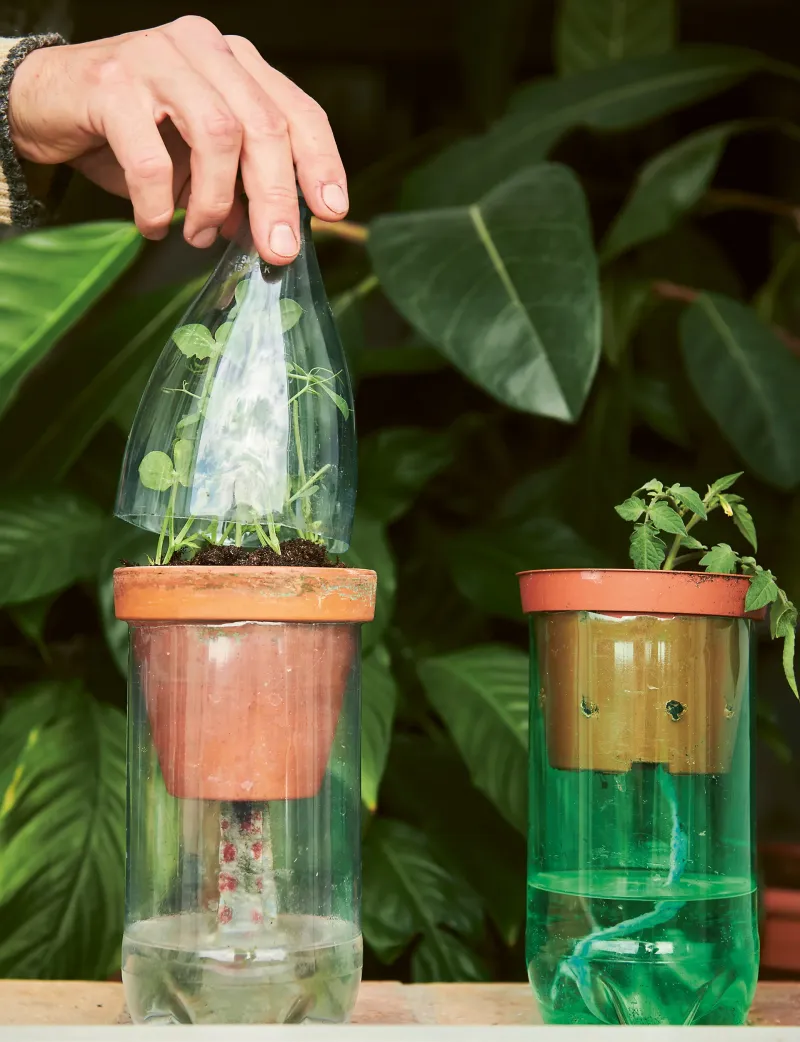
Transform plastic bottles into mini greenhouses. Cut them in half and place over seedlings to protect from cold and pests, creating a nurturing environment. These makeshift greenhouses trap heat and moisture, fostering strong early growth. This hack is particularly useful during early spring when temperatures fluctuate. It repurposes materials, making it a cost-effective and sustainable gardening practice. By using bottle greenhouses, you ensure your young plants thrive, giving them a robust start in life. This method is simple, yet highly effective for gardeners looking to maximize plant health with minimal resources.
Ink-Free Cardboard for Mulch
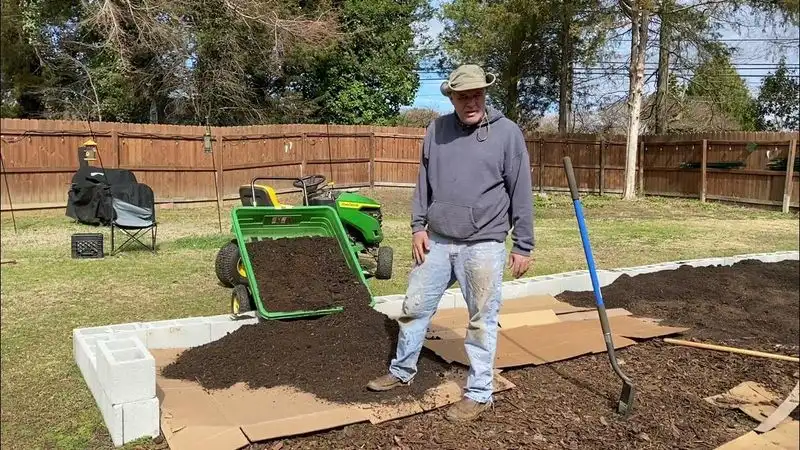
Use ink-free cardboard as mulch to suppress weeds and retain moisture. Lay sheets between plants to block sunlight from reaching weeds, preventing their growth. As the cardboard breaks down, it adds organic matter to the soil, enhancing fertility. This method is cost-effective and sustainable, utilizing recyclable materials readily available. Ideal for large gardens, cardboard mulch reduces maintenance and supports healthy plant development. By repurposing cardboard, you foster an eco-friendly garden environment, benefiting both your plants and the planet. This approach simplifies gardening tasks while promoting sustainability.
DIY Plant Markers
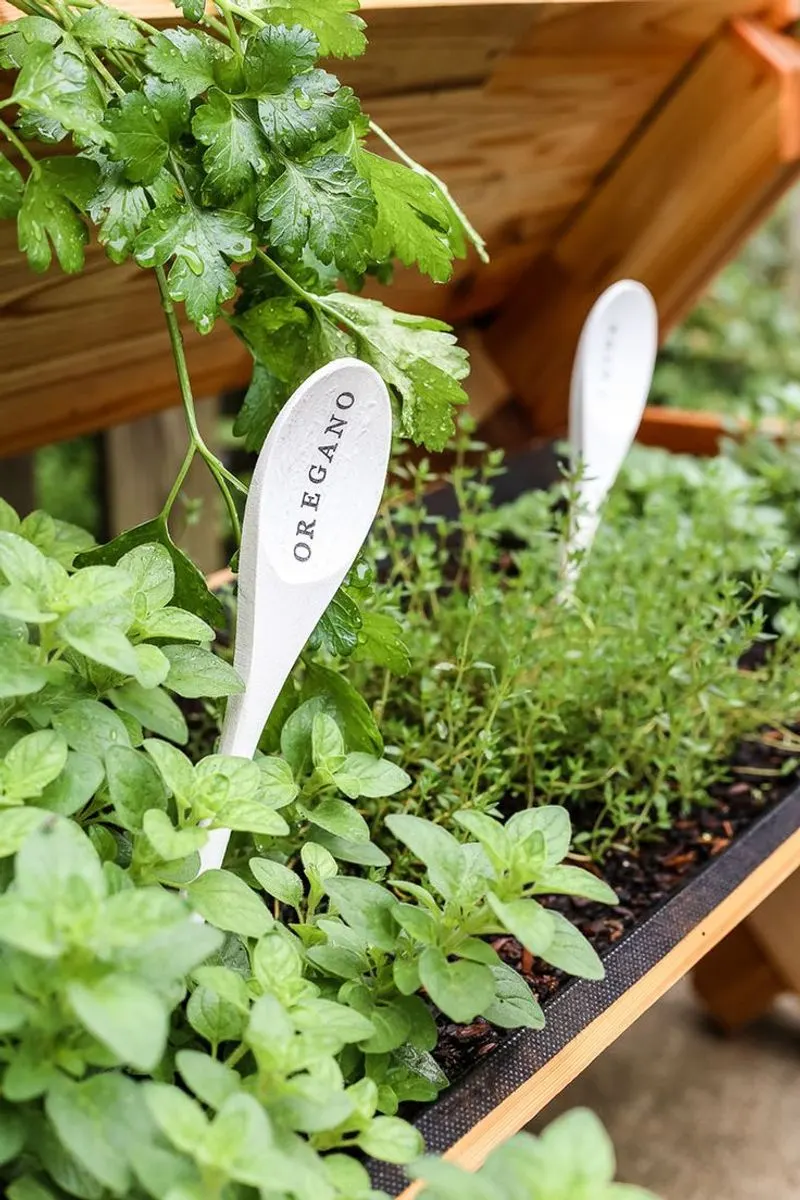
Create your own plant markers using recycled materials. Painted rocks, old spoons, or popsicle sticks can be transformed into unique markers, adding personality to your garden. This hack is ideal for gardeners looking to organize their space creatively while reducing waste. By crafting your markers, you personalize your garden, making it both functional and aesthetically pleasing. It’s a fun project for all ages, offering a chance to engage with gardening in a new way. Embrace creativity and sustainability with these DIY markers, enhancing your garden’s charm and your gardening enjoyment.

